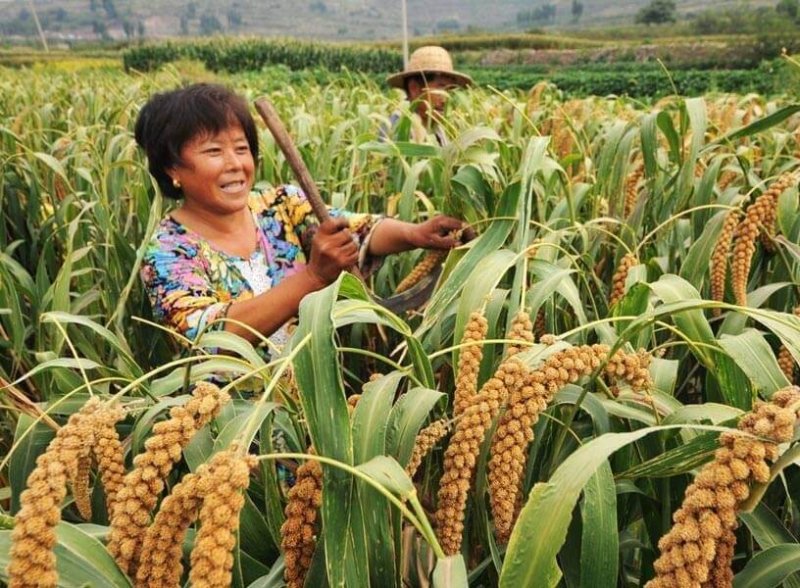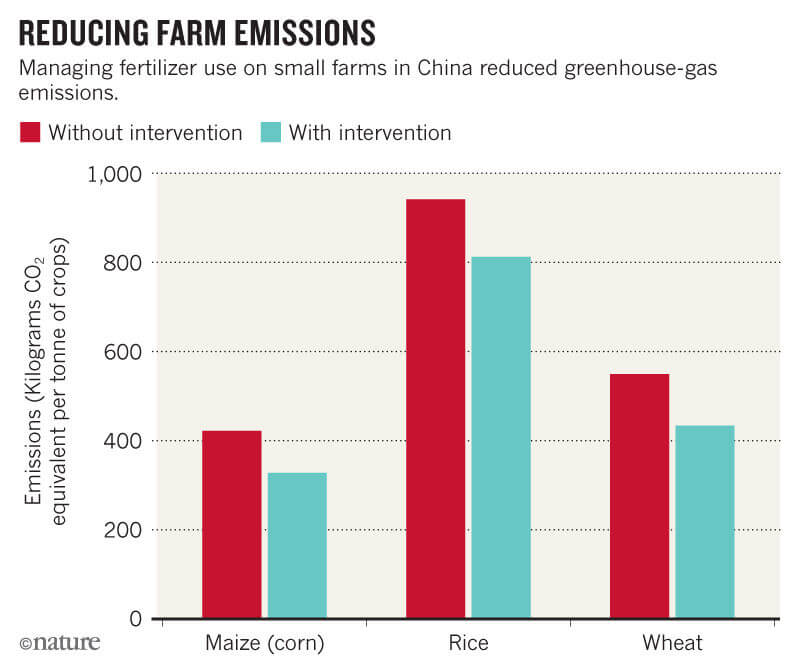A landmark project to make agriculture more sustainable in China has significantly cut fertilizer use while boosting crop yields on millions of small farms across the country, researchers report in Nature.
As part of a decade-long study, scientists analysed vast amounts of agricultural data to develop improved practices, which they then passed on to smallholders. Through a national campaign, about 20.9 million farmers adopted the recommendations, which increased productivity and reduced environmental impacts. As a result of the intervention, farmers were together US$12.2 billion better off.
…
From 2005 to 2015, the project team conducted 13,123 field studies at maize (corn), rice and wheat farms across the country, from the subtropical south to the frigid north. The researchers tested how yields varied with different crop varieties, planting times, planting densities, fertilizer and water use.
…
Almost 21 million farmers adopted the group’s recommendations between 2006 and 2015. In that period, crop production for each grain increased by an average of around 11%. The study’s collaborators also recorded a surprising drop in fertilizer use — about 15% per crop — saving 1.2 million tonnes of nitrogen.
“The demonstration that reducing inputs can actually boost agricultural, environmental and economic performance at scale is very important,” says [Charles Godfray, a population biologist at the University of Oxford, UK].
Editor’s note: Read the full study (behind paywall)
Read full, original post: Millions of Chinese farmers reap benefits of huge crop experiment
































